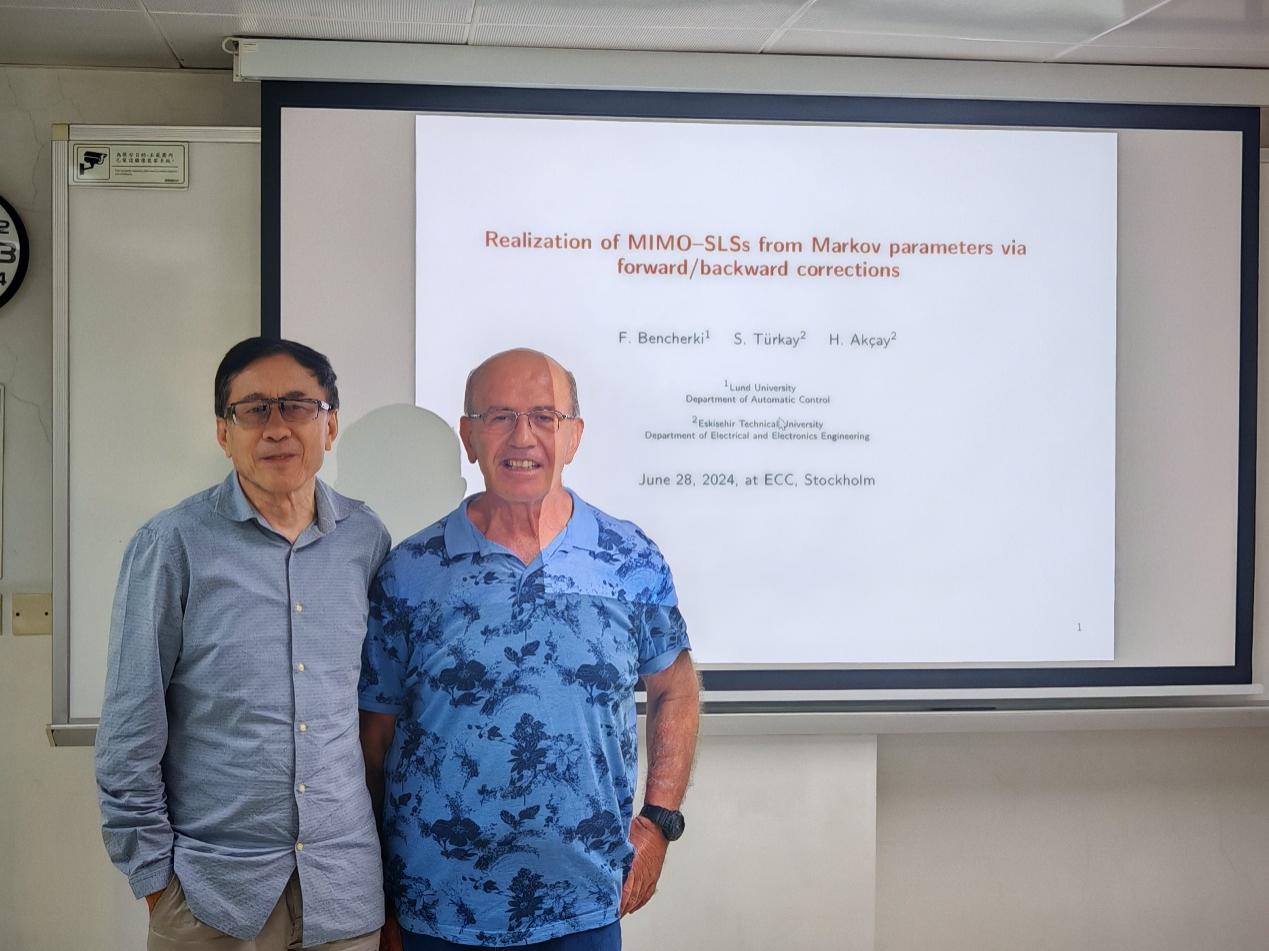Professor Hüseyin Akçay visited Macau University of Science and Technology on June 6, 2025. He was given warm welcome by Professor Qian Tao, the Director of the Macau Centre for Mathematical Sciences of Macau University of Science and Technology, and Associate Professor Xiao Xuanxuan, Assistant Director of the Macau Centre for Mathematical Sciences.
Professor Hüseyin Akçay is a leading expert in system identification and control systems, with profound expertise in applied mathematics and engineering. He received a Master’s degree in Mechanical Engineering from the Massachusetts Institute of Technology (MIT), and both a Ph.D. in Mechanical Engineering and a Master’s degree in Mathematics from the University of Michigan (UMich), Ann Arbor. He previously held a teaching post at Anadolu University and Eskisehir Technical University in Turkey. He has also conducted research as a visiting scholar at several internationally renowned institutions, including Linköping University (Sweden), the University of Newcastle (Australia), KU Leuven (Belgium), Delft University of Technology (the Netherlands), and the University of Bremen (Germany).
Professor Akçay has published numerous high-impact journal and conference papers in the fields of robust system identification, spectral estimation, and control theory. In recent years, his research has focused on integrating classical control/signal processing techniques with modern machine learning methods, particularly in the modeling of power spectral density under incomplete or irregular data and switching linear systems (SLS). In addition to his research, he has been deeply committed to graduate education, having supervised many Ph.D. and Master’s students and developed several advanced courses in system dynamics, nonlinear control, and engineering mathematics.
During Professor Akçay’s visit in MUST, he also gave a presentation of his latest research on the model-based two-step control synthesis problem for Switching Linear Systems (SLS). He proposed a novel algorithm that, under mild assumptions on dwell time and subsystem models, enables the realization of a multi-input multi-output (MIMO) SLS state-space model from Markov parameters. A key innovation of the method lies in the introduction of forward and backward correction operators, which effectively eliminate the dependence on basis vector selection during the state-space realization process. The effectiveness of the proposed approach was validated through numerical simulations.
After the presentation, the attending faculty members and students actively engaged in a lively discussion with Professor Akçay.

Professor Tao Qian (left) and Professor Hüseyin Akçay (right) pose for a photo together.





